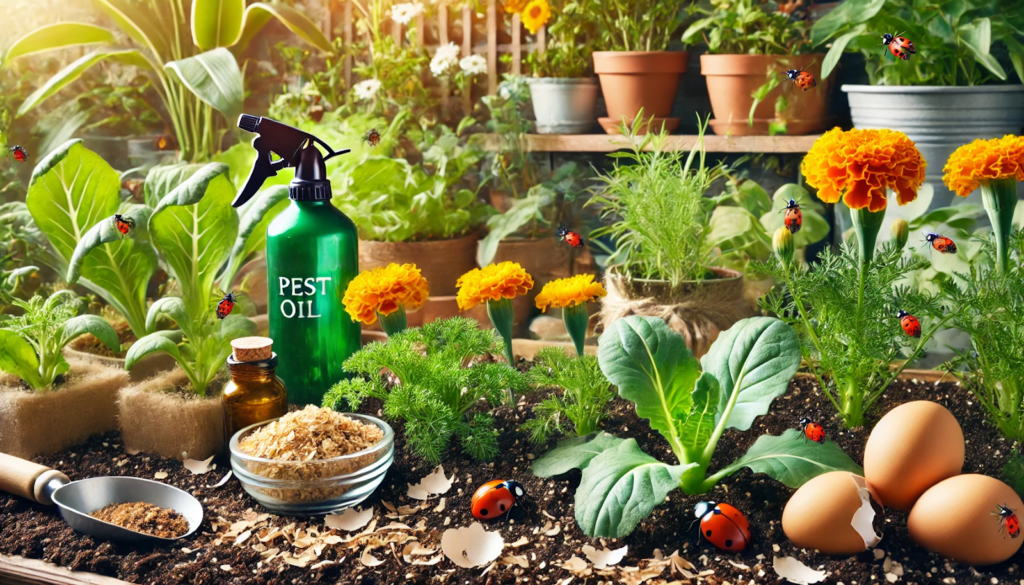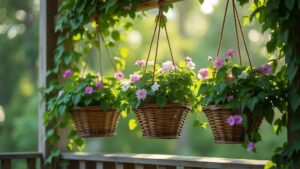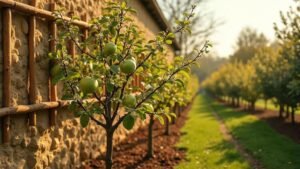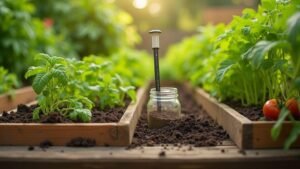Gardening organically means more than just avoiding synthetic chemicals—it means working with nature to protect your plants. While pests are an inevitable part of gardening, there are effective, natural ways to manage them without harming the environment, beneficial insects, or your soil.
In this guide, you’ll learn the best organic pest control solutions to keep your garden thriving naturally.
Why Use Organic Pest Control?
- Safer for people and pets
- Protects pollinators like bees and butterflies
- Improves soil health over time
- Reduces long-term pest resistance
- Aligns with sustainable gardening principles
1. Neem Oil Spray
Neem oil is a powerful organic pesticide derived from the neem tree.
What it Controls:
- Aphids
- Whiteflies
- Spider mites
- Mealybugs
- Fungal diseases (like powdery mildew)
How to Use:
- Mix 1–2 tablespoons of neem oil with a quart of water
- Add a few drops of mild dish soap
- Spray on leaves (top and underside) every 7–14 days
Tip: Spray in early morning or late evening to avoid harming beneficial insects.
2. Companion Planting
Some plants naturally deter pests when grown near specific crops.
Great Companions:
- Marigolds: Repel nematodes and whiteflies
- Basil: Keeps mosquitoes and flies away from tomatoes
- Garlic and chives: Deter aphids and beetles
- Nasturtiums: Attract aphids away from veggies
Bonus: Companion plants often attract pollinators and beneficial insects.
3. Diatomaceous Earth
This natural powder is made from fossilized algae and works by drying out soft-bodied pests.
Effective Against:
- Slugs
- Ants
- Aphids
- Flea beetles
How to Use:
- Dust lightly on and around plants
- Reapply after rain or watering
Caution: Avoid breathing the dust and keep it dry for maximum effectiveness.
4. Homemade Insecticidal Soap
A simple mix of soap and water is safe for plants and deadly to soft-bodied pests.
Recipe:
- 1 tablespoon of mild liquid soap (not detergent)
- 1 quart of water
- Optional: a teaspoon of vegetable oil
How to Use:
- Spray directly on pests
- Reapply weekly or as needed
Tip: Test on a small leaf first to avoid potential damage.
5. Introduce Beneficial Insects
Encourage or release insects that prey on common garden pests.
Good Bugs to Welcome:
- Ladybugs: Eat aphids and mites
- Lacewings: Target aphids, mealybugs, thrips
- Praying mantises: Eat just about anything!
- Parasitic wasps: Control caterpillars and whiteflies
Plant flowers like dill, yarrow, or alyssum to attract them naturally.
6. Beer Traps for Slugs and Snails
Slugs are a common menace—especially in moist gardens.
How to Trap:
- Bury a shallow container at soil level
- Fill with beer or yeast-water mix
- Slugs will crawl in and drown
Empty and refill every couple of days.
7. Crushed Eggshells for Barriers
Eggshells create a sharp, uncomfortable surface that repels crawling pests.
How to Use:
- Crush clean, dry eggshells
- Sprinkle in a circle around base of plants
Best for:
- Slugs
- Cutworms
- Some beetles
8. Garlic and Chili Spray
This natural spray irritates and repels many insects.
Recipe:
- Blend 1 head of garlic + 1 hot chili pepper + 2 cups of water
- Strain and dilute with 1 liter of water
- Add a few drops of soap
- Spray on affected plants
Tip: Avoid contact with eyes and test on one plant before full use.
9. Row Covers and Netting
Physical barriers are simple and highly effective.
Benefits:
- Keeps pests out without sprays
- Protects seedlings from birds and insects
- Maintains airflow while blocking bugs
Use lightweight, breathable material and secure edges tightly.
10. Regular Garden Maintenance
Healthy plants are more resilient. Keeping your garden clean helps prevent infestations.
Do This Weekly:
- Remove dead or diseased leaves
- Thin overcrowded plants for airflow
- Check the underside of leaves for eggs or larvae
- Rotate crops annually
Bonus: Attract Birds to Your Garden
Birds like wrens, sparrows, and chickadees feed on garden pests.
How:
- Install a birdbath or shallow water source
- Use bird feeders (not during peak harvest season)
- Plant native shrubs or trees for shelter
Caution: Use netting to protect fruits if needed.
Combine Methods for Best Results
No single method works perfectly. The best approach is Integrated Pest Management (IPM)—combining natural controls to reduce pest problems while protecting beneficial life.
Stronger Plants, Healthier Garden
Organic pest control doesn’t mean letting bugs take over—it means finding balance. With these safe, natural strategies, you’ll protect your crops, nourish your soil, and build a healthier, more resilient garden over time.






